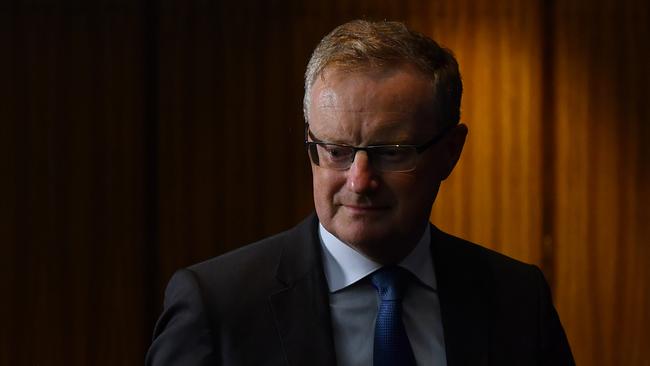RBA’s Philip Lowe calls on banks to increase their coronavirus lending to support the economy
RBA’s Lowe stresses importance of lenders continuing to support the flow of credit to the economy.

Reserve Bank of Australia governor Philip Lowe has called on the banks to increase their lending to support the economy during the coronavirus pandemic, while again stating that negative interest rates remain “extraordinarily unlikely” in Australia.
Appearing alongside fellow Council of Financial Regulators members Australian Prudential Regulation Authority chair Wayne Byers and Australian Securities & Investments Commission chair James Shipton on a Financial Services Institute of Australasia webcast, Dr Lowe said the nation’s financial system is “resilient and is well placed to deal with COVID-19”.
“The system is in this strong position partly because over the past decade APRA has worked with financial institutions to boost their capital and to reduce their liquidity risks,” he said, adding that banks are “also profitable and they have had low levels of problem loans”.
But Australia’s financial regulators “wanted to emphasise that it is important that lenders continue to support the flow of credit to the economy”, Dr Lowe said.
“The second point is that the capital and liquidity buffers that exist are available to be drawn upon if required to support the economy. I would like to reinforce this point today.
“If there was ever a time to allow these buffers to be used, now is that time.
“We should not expect to see capital buffers be maintained during a once-in-a-century shock.
“These buffers have been built up to be utilised in events such as this, and some reduction in capital ratios is entirely appropriate as lenders support their customers through this difficult period.”
Sudden contraction
With the virus causing “the biggest and most sudden contraction since the 1930s”, Dr Lowe said the unprecedented fiscal and monetary policy response was designed to “build a bridge to the point when the virus is contained and the capacity of our health system has been scaled up so that it can cope”.
“The banks too have been part of building this bridge through their repayment deferrals and their provision of credit lines to businesses”, and it is “both understandable and desirable that lenders draw on the buffers that were built up in better times”.
“It is in the banks’ own interest and in the interest of the broader Australian community that banks support their customers now and also support them in the recovery phase when credit will be needed so that businesses can once again expand.”
Despite all the effort to date, “the future remains unusually uncertain”, Dr Lowe warned.
While an “obvious source of uncertainty is the pace at which the various restrictions are eased”, restoring people’s confidence on their health and the economy is a “critical issue”.
“It is interesting that the initial evidence is that countries that have had fewer restrictions are also experiencing very large contractions in economic activity,” Dr Lowe said.
“This suggests that voluntary decisions that people have made in response to the uncertainty about their health and their finances is also playing a major role.
“In the face of this uncertainty, people have been reluctant to go out and spend and businesses have been reluctant to invest.”
For its part, the RBA is “doing what it can to keep funding costs low and credit available” and the government has granted a six-month exemption from responsible lending obligations when lenders provide credit to existing customers who run a small business.
“Consistent with this, ASIC has been encouraging lenders to work closely with their customers to provide short-term assistance and support their longer-term viability (and) APRA has announced temporary changes to its expectations regarding bank capital ratios.”
The RBA governor said Australia’s financial institutions also have an important role in helping us get there.
“They are helping us to build the bridge to the point when the virus is contained and our economy recovers. As part of this effort, it is both understandable and desirable that lenders draw on the buffers that were built up in better times.
But in a Q&A session following his panel appearance, Dr Lowe again reiterated his distaste for negative interest rates as a monetary policy tool in Australia.
He said a question that came up a number of times in the Q&A of the FINSIA webcast was “were we thinking of using negative interest rates?”
“I said previously that it was extraordinarily unlikely that we would have negative interest rates and there has been no change,” Dr Lowe said.
“The board is not contemplating negative interest rates in Australia.
I think the costs of that exceed the benefits.”
Asset price shifts ‘manageable’
Bank watchdog Wayne Byres has said the impact on the financial system of shifts in asset prices caused by COVID-19 is likely to play out over an extended period and would therefore be “manageable”.
Speaking at a financial regulators’ webinar hosted by FINSIA, the chairman of the Australian Prudential Regulation Authority said it was reasonable to assume that the price of some assets would change as a result of factors like decentralisation.
“There’s a lot of speculation that CBD office (space) is dead; maybe it is, maybe it isn’t,” Mr Byres said.
“The key thing in whether that causes stress or strain in the financial system is less about the nature of the shift and more about the time horizon over which it occurs, because if it’s a gradual shift that occurs over years, the system will adjust, financial institutions will adjust and values will adjust.
“And it will be in an orderly fashion.
“The shocks and stresses to the system occur when there’s a snap adjustment.”
While the broader economy was feeling the impact of a snap downturn, it was difficult to predict the effect on property prices.
“I think it will play out over time and therefore, while I’m quite confident it will have an impact, I think it will be manageable because it’s likely to play out over a period,” Mr Byres said.
“I’m not unduly concerned at this point.”







To join the conversation, please log in. Don't have an account? Register
Join the conversation, you are commenting as Logout